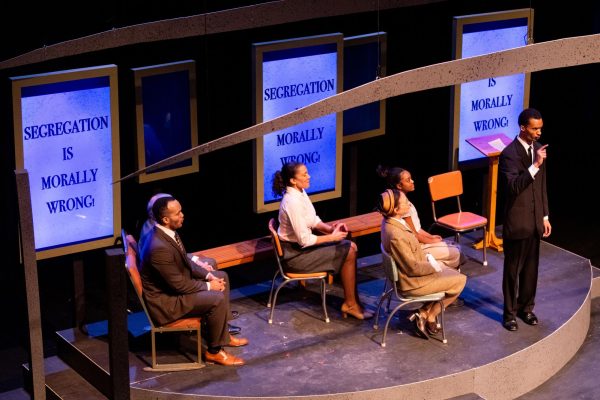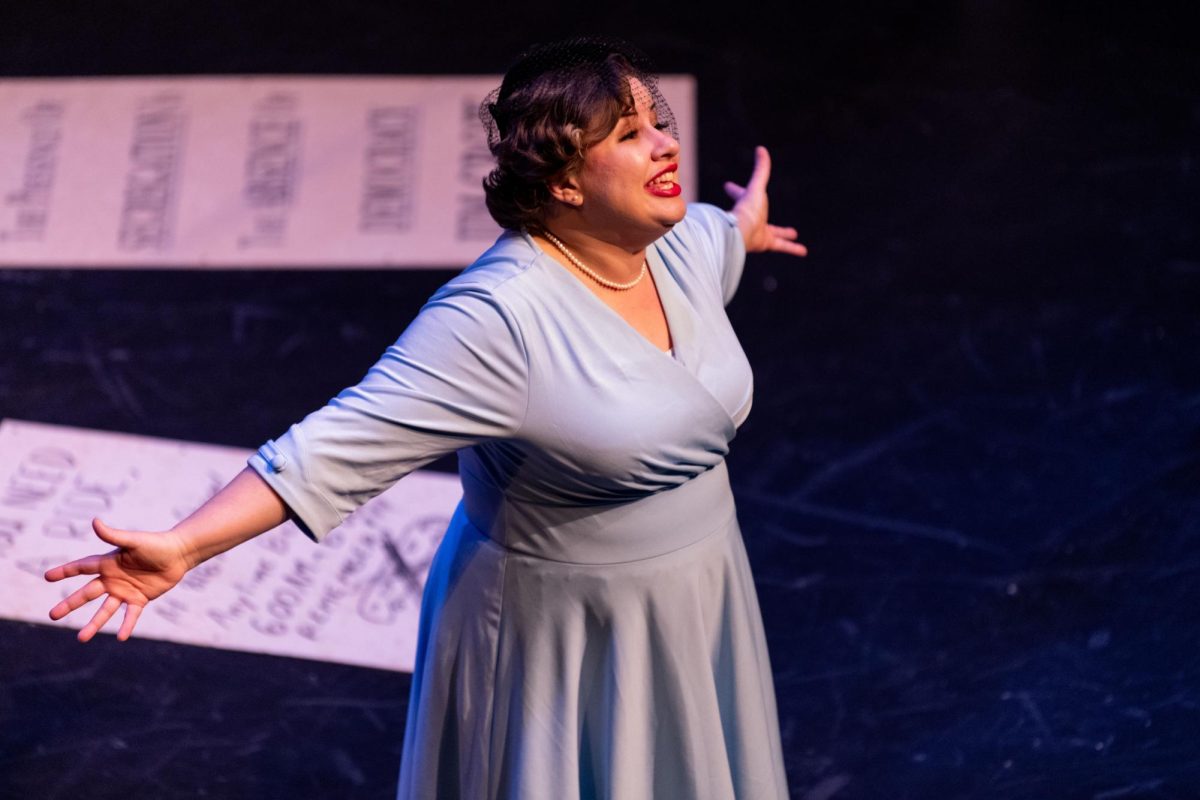When audiences came to see the play “Rosa Parks and the Montgomery Bus Boycott” last Saturday at the New Hazlett Theater on the North Side, they saw a lot more than a recap of a familiar historical story. With a blend of scenes imagining the past, educational segments and African American spiritual songs, the play uncovered the lesser known sides of not only the story of Rosa Parks, but of the civil rights movement as a whole.
Prime Stage Theatre, a Pittsburgh-based theater company, is showing “Rosa Parks and the Montgomery Bus Boycott” at the New Hazlett Theater from Jan. 19-28. A mix of education and entertainment, the play creates an in-depth look at the wide range of historical figures, events and activism that went into the Civil Rights Movement’s effort in ending segregation on public transport.
Wayne Brinda, the co-founder of Prime Stage Theater and the production’s artistic director, said that he and Linda Haston, Prime Stage Theater’s education director, had a similar feeling that children are not as informed about the history of civil rights as they could be. With Martin Luther King Jr. Day earlier this month and Black History Month approaching in February, Brinda said putting on “Rosa Parks and The Montgomery Bus Boycott” presented a great opportunity to deepen knowledge of the civil rights movement for both children and adults.
“There’s a lot of things that kids need to know about and aren’t really really being taught, and I would say a lot of adults aren’t even aware, and maybe have forgotten some of the things that Martin Luther King Jr. promoted,” Brinda said. “I’m looking at this as an opportunity to help teachers and an opportunity to engage young people, and look at the true history of what was going on, and then learn from it and apply it to your life.”
Rachel Salinetro, a Pittsburgh-area parent who brought her 11-year-old son to the play’s opening night this past Saturday, said she felt the play’s impact on her son was potent.
“I wanted to bring my son because he needs to learn about all these important moments in history, and during the play, he leaned over to me and said, ‘I really like this,’ so he was absorbing the importance of it, and he was engaged,” Salinetro said.
“Rosa Parks and the Montgomery Bus Boycott” is a part of the Prime Stage Sprouts program, which aims to “bring literature to life” for students in grades three and above. Despite being geared towards younger audiences, adults who saw the play this Saturday said its inclusion of deeper aspects of Rosa Parks’ activism and life, as well as the contributions of other activists key to the success of the Montgomery Bus Boycott, gave them refreshed, and even new, understandings of the familiar story of Rosa Parks.

Eileen Tenebaum, a resident of Whitehall, said the play filled in the gaps of what she learned about Rosa Parks decades ago in school.
“There were lots of parts of the story that I had no idea about,” Tenebaum said. “I heard about it in school, but that was 40 years ago, and a lot of that we didn’t learn.”
For Courtney Ringsdorf, a resident of Erie, the play did not just teach her new information — it helped her connect with the real, human side of history.
“I love that they would stop and give a quote — you felt like you were getting real history,” Ringsdorf said. “I didn’t remember all the facts of this history, and this play brought it to life for me.”
In Brinda’s opinion, theater as an art form provides a powerful platform to connect people to the emotional weight of an educational topic.
“I think that theater is an incredible opportunity and tool to inspire, to engage, to educate and take audiences to places they’ve never been before and things they’ve never thought about before,” Brinda said. “That’s really what theater needs to do — you’re not just entertained, but creating an educational aesthetic and emotional and intellectual experience.”

For some audience members, the emotional pieces of the play connected the Civil Rights Movement of the past to the activism of the present.
“All those details we learned about made it a lot more personal and relatable, where we’re like ‘She [Rosa Parks] is human, and it was scary all the time,’” Salinetro said. “It’s not like us going to a protest and we’re safe and we’re fine and we go home.”
Cast member Cynthia Dallas, who was a part of the ensemble, said she felt the play’s historical themes give it its strength and relevance to audiences. To Dallas, a story exploring a pivotal piece of the Civil Rights Movement offers a vital look into the ongoing struggles of racism today.
“I feel like if history is done right, it is entertaining, because it still plays such a huge part in what’s going on now,” Dallas said. “There’s this idea that racism is gone or that it’s something in the past and we shouldn’t talk about it, but we can’t move forward until we learn about what happened, especially if people are still dying at the hands of racism.”


